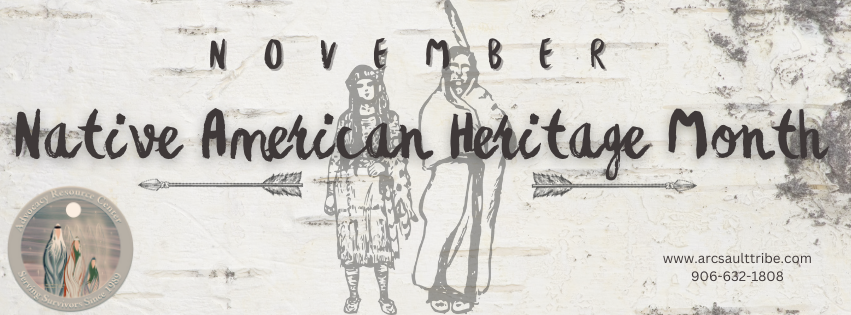November-Native American Heritage/Cultural Abuse Awareness

What is Cultural Abuse? Cultural or spiritual abuse is one of the lesser-known forms of domestic violence. It is often overlooked, but it is one of the most devastating forms of abuse to a Native American. Cultural and spiritual abuse is a form of abuse that involves the misuse of cultural beliefs to manipulate, control, or harm individuals. Manipulating someone by using their teachings or beliefs to control or coerce someone into specific actions or behaviors; isolating individuals from their supports or practices; shaming or guilt-tripping one’s cultural beliefs to make individuals feel unworthy or not accepted; manipulating or forcing someone to adopt their beliefs against their will are some of the ways abusers can abuse their victim. Cultural and spiritual abuse, as identified by Stronghearts Native Helpline, describes spiritual abuse as a way to control how a person interacts with the world. Some of these types of abusive behaviors can include when your partner:
- Belittles your beliefs, practices, and traditions
- Prevents you from participating in spiritual or cultural traditions
- Forces you to participate in practices (not your own)
- Misstating or misusing spiritual practices against you
- Practices bad medicine against you
For our tribal communities, spiritual or cultural abuse can look like this:
- Telling you that you’re not “Native enough,” or if your partner is non-Native, that you’re “too Indian.”
- Using hurtful stereotypes to put you down (“Indians are drunks, lazy,” etc.)
- Preventing you from participating in ceremonies, pow-wows, feasts, etc.
- Using tribal membership against you (“My tribe won’t let you…”)
- Telling you that you’re not allowed to drum, dance, sing, fast, or otherwise participate in traditions because of your gender.
For more information about cultural and spiritual abuse, visit https://strongheartshelpline.org/abuse/what-is-cultural-abuse) Cultural abuse has another meaning. Cultural abuse, or cultural appropriation or exploitation, refers to the inappropriate use or misrepresentation of norms or elements from one culture by individuals or groups from a different culture, often with ignorance and without proper understanding, respect, or permission. Cultural abuse is often observed around Halloween. We’ve seen it time and again: people dressed as scantily clad Native American “princesses” or as “Pocahontas.” Donned in fringe and long black wigs to imitate a Native American woman and mocking Native culture is nothing new. People have dressed up in various cultures for many years. Wearing “black face,” grass skirts and coconut tops, sombreros, burkas, kimonos, or dressing as an Eskimo are just a few. Fortunately, there has been an increased awareness of cultural appropriation for Halloween costumes, ad branding, and sports teams. Mascots for teams and product representatives have been changed to eliminate cultural exploitation. Choosing costumes to mimic a race or ethnicity should strongly be reconsidered, even if the intent is not to be offensive or insensitive. Cultural abuse correlates to colonization and genocide, the root cause of violence in our communities and society. If you feel you are being abused simply because of your culture, there is help. Advocacy Resource Center has advocates to give support for all forms of domestic violence. November is Native American Heritage Month. Celebrate your Native Heritage and be proud of who you are. Not too long ago, many Native Americans were ashamed of their Heritage. It was once suggested not to admit one was Native American for fear of losing children to the Residential Boarding School system or for fear of humiliation and being ostracized by their peers, community, or society as a whole. Native American Heritage has made its way to the forefront. We are still here. We are resilient, and we are flourishing. Native fashion, foods, and crafts are highly sought after, and we are seeing a new interest and thirst for Native culture in society today. Be proud of yourself, your family, and your culture. We’ve come a long way.